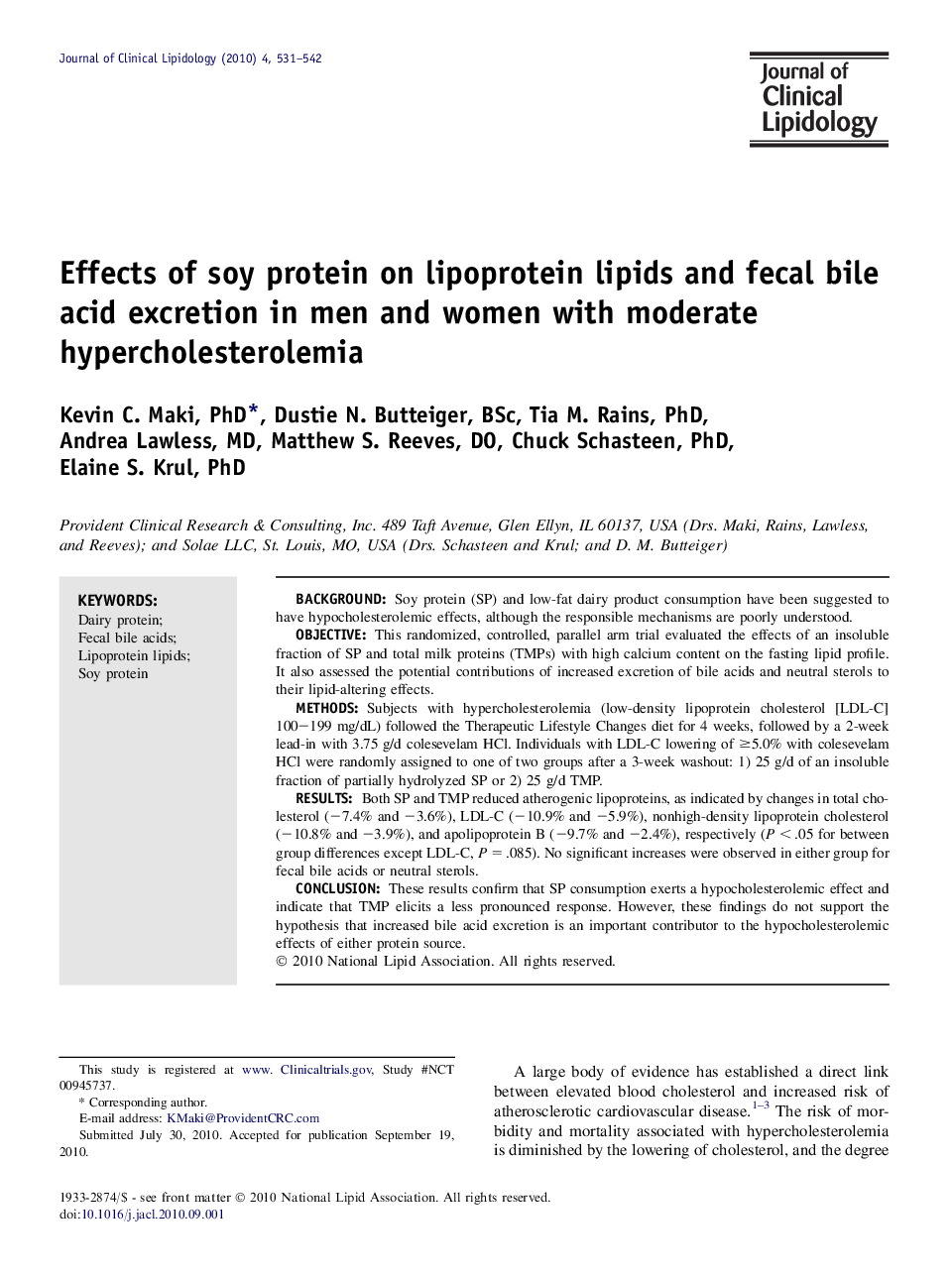| Article ID | Journal | Published Year | Pages | File Type |
|---|---|---|---|---|
| 2966151 | Journal of Clinical Lipidology | 2010 | 12 Pages |
BackgroundSoy protein (SP) and low-fat dairy product consumption have been suggested to have hypocholesterolemic effects, although the responsible mechanisms are poorly understood.ObjectiveThis randomized, controlled, parallel arm trial evaluated the effects of an insoluble fraction of SP and total milk proteins (TMPs) with high calcium content on the fasting lipid profile. It also assessed the potential contributions of increased excretion of bile acids and neutral sterols to their lipid-altering effects.MethodsSubjects with hypercholesterolemia (low-density lipoprotein cholesterol [LDL-C] 100−199 mg/dL) followed the Therapeutic Lifestyle Changes diet for 4 weeks, followed by a 2-week lead-in with 3.75 g/d colesevelam HCl. Individuals with LDL-C lowering of ≥5.0% with colesevelam HCl were randomly assigned to one of two groups after a 3-week washout: 1) 25 g/d of an insoluble fraction of partially hydrolyzed SP or 2) 25 g/d TMP.ResultsBoth SP and TMP reduced atherogenic lipoproteins, as indicated by changes in total cholesterol (−7.4% and −3.6%), LDL-C (−10.9% and −5.9%), nonhigh-density lipoprotein cholesterol (−10.8% and −3.9%), and apolipoprotein B (−9.7% and −2.4%), respectively (P < .05 for between group differences except LDL-C, P = .085). No significant increases were observed in either group for fecal bile acids or neutral sterols.ConclusionThese results confirm that SP consumption exerts a hypocholesterolemic effect and indicate that TMP elicits a less pronounced response. However, these findings do not support the hypothesis that increased bile acid excretion is an important contributor to the hypocholesterolemic effects of either protein source.
